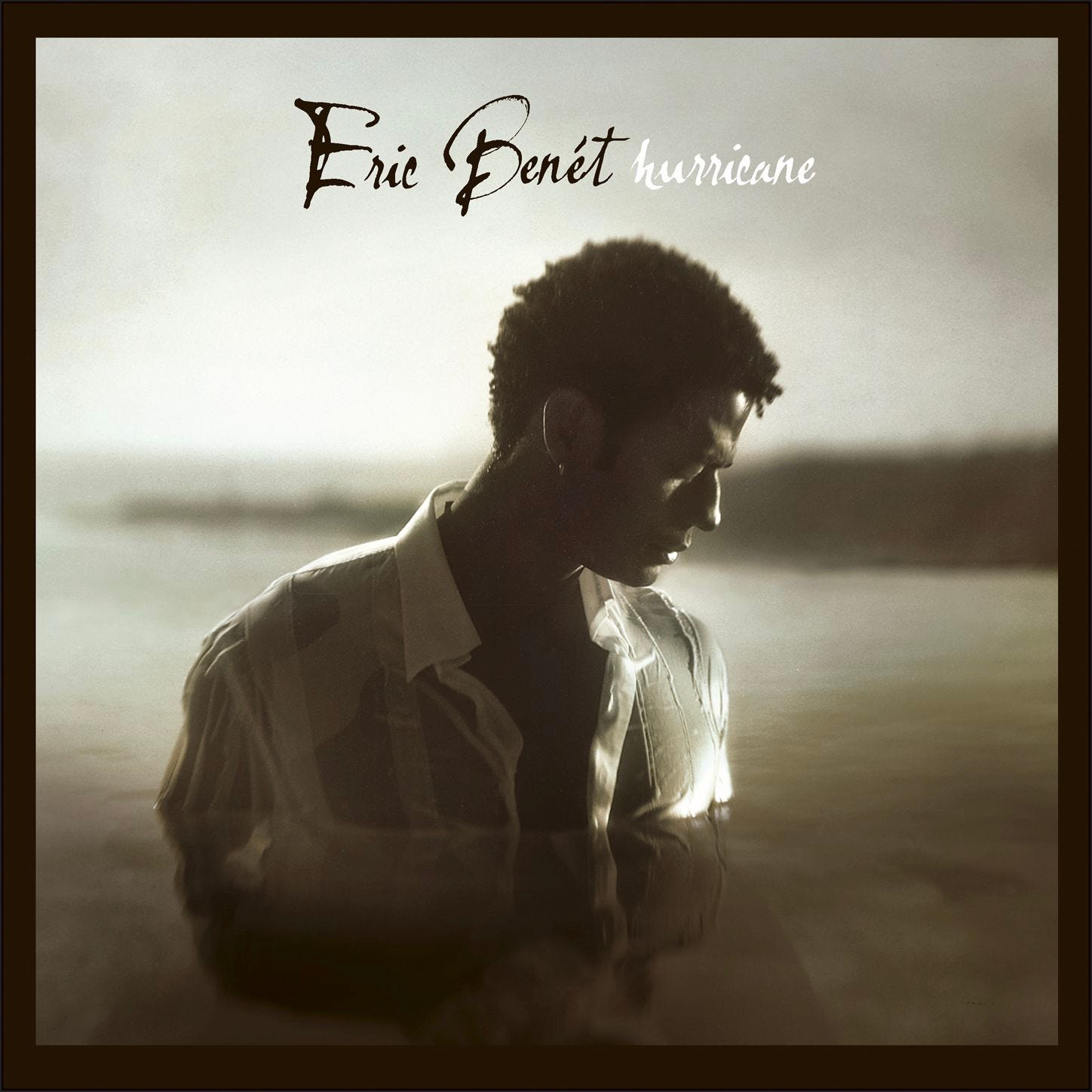Eric Benét, Storm Is Over (2005 Interview)
He has always shaped each record around a brand-new premise, and this time the premise is “healing myself.” Benét invites us to listen to Hurricane by reclaiming the music that truly belongs to him.
After a six-year layoff, he returns with an album produced by two masters of heart-rending pop craft—David Foster and Walter Afanasieff—yielding a theatrical set. The whirlwind of marriage to divorce with actress Halle Berry over the past few years informs every corner of this deeply emotional record. In the pages that follow, he speaks about the twists and detours that delayed its release, the intentions he poured into it, and the road from the hurricane’s direct hit to eventual healing.
This conversation is translated, lightly edited for content and clarity, follows below.
Q — It’s been a long wait for new music. Why did this album take so much time?
A: “Back in 2001, I actually made a record, but Warner didn’t get it (laughs). Because the second album was pretty commercial, they thought the new one strayed too far and shelved it. I refused to re-enter the studio just to chase something ‘commercial,’ so I needed a heavyweight who could understand my vision yet still communicate with a giant like Warner Bros. That person turned out to be David Foster. Creatively and politically he backed me all the way and pushed this album through. We hadn’t even met until a formal party in 2003— I cornered him, asked for help, and a few days later he invited me to his place in Malibu. We talked through my situation and the concept, and he said, ‘Let’s go into a studio right now and write together.’ That set the tone.”
Q — You’ve now signed with Friday Records, still distributed by Warner. Why Friday?
A: “Friday gives me much more creative freedom. This album isn’t a textbook R&B set—honestly, it’s beyond R&B—so a non-genre record like this needs inventive marketing and can’t be forced through a standard corporate mold. A smaller label is better suited for that, while a major can still handle distribution. Best of both worlds.”
Q — Long-time collaborators Joe Nance, Jr. and Demonte Posey are back, but the star producers from the last album aren’t.
A: “This time, I was obsessed with making my music. On the previous record, I hired hit-makers to chase hits; here I wanted nothing but a pure expression of myself.”
Q — You debuted proclaiming, “I’m true to myself, y’all,” and on this record, you sing, “Now I can be myself again.” When did you start feeling untrue to yourself?
A: “So many things happened— (deep sigh) —my marriage, everything in my private life. Looking back, I wasn’t living as myself at all. I kept forcing my life to fit things that weren’t me, trapped by Hollywood’s expectations. My own will and identity got shoved aside. Getting hurt that badly finally made me think deeply, and that let me rediscover who I am.”
Q — While you were struggling, were you still writing music, or did you even lose that?
A: “There was a period when my private life was pitch-black and my creative life fell into darkness too. Music is always playing in my head, but it just stopped. That hadn’t happened since India’s mother died. Rediscovering myself brought the sound back, so I chased my own music without any star guests. This album is my therapy.”
Q — “Hurricane” is intensely dramatic. Why make it the title track?
A: “Life hits you with hurricanes and tsunamis. When it does, it feels like everything is swept away. It’s painful, but in a way, it’s a chance to rebuild from scratch. The last two or three years felt exactly like being hit by a wave, yet losing everything forces you to find the strength that was sleeping inside. That’s what I wanted the album to say, and that’s the song that says it.”
Q — You named another song after your daughter, “India.” Why include a dedication to her?
A: “During those rough years, India was the reason I kept going. While writing, I thought, What if I weren’t here anymore? I wanted to leave her a song that would feel like her father’s embrace even if I’m gone.”
Q — Does India have musical talent of her own? Any chance of a duet someday?
A: “That could be a cute idea!” (laughs) “Who knows—maybe it’ll happen. She has a beautiful voice, and she’s taking classical piano.”
Q — How does this album differ from your first two?
A:
• Debut: “I wanted to send a strong musical message—unique and absolutely true to myself.”
• Second: “I aimed for impact and radio hits—tried to birth big singles.”
• Now: “I made it to heal myself and move toward happiness, spilling every feeling I had and showing the most honest me I could.”
Q — Much of the new record isn’t typical R&B, right?
A: “I’ve always been labeled an R&B singer, but I never saw myself only that way. Sure, R&B is part of me, yet while I listened to Stevie Wonder I also soaked up the Beatles, Steely Dan, Bobby Caldwell—lots of genres. So an album like this feels natural.”
Q — What’s next?
A: “Promote the album worldwide, finish the film script I’m working on, and dive into another new record. The concept is forming—it’ll be different from this one. The slump is over; music’s flowing through my head again and I’m writing constantly.”
Message to Japanese fans
“Sorry it took so long between releases! Don’t worry—the fourth album won’t make you wait this long again.”


